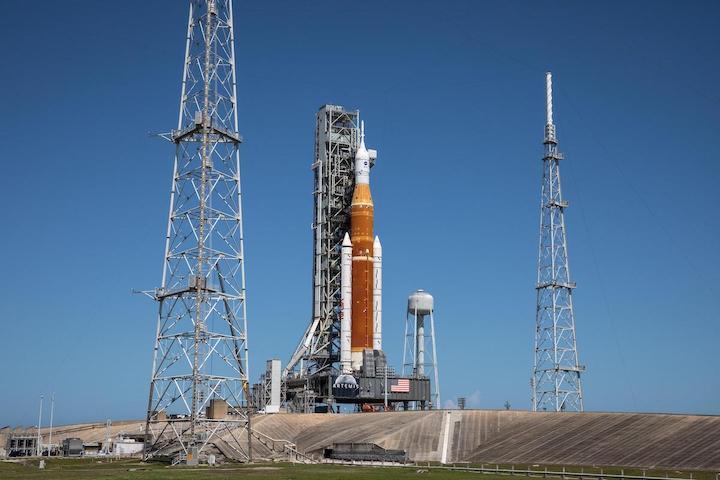14.02.2025

DOGE to examine NASA payments
WASHINGTON — NASA’s acting administrator says the new Department of Government Efficiency (DOGE) organization will be examining payments at the agency but that safeguards are in place to prevent any conflicts of interest involving Elon Musk.
In comments to reporters after a speech at the Commercial Space Conference here Feb. 12, Acting Administrator Janet Petro said NASA has been focused on carrying out the various executive orders issued by the Trump administration since taking office Jan. 20.
“We are really executing the executive orders. That is what are heads are down and in on doing,” she said. Staff at NASA Headquarters and the field centers “are really trying to wrap our heads around all the executive orders as they’re flying at us.”
Those orders have included the creation of DOGE, built upon the earlier U.S. Digital Service and spearheaded by Elon Musk with the stated goal of rooting out wasteful spending in the federal government. The implementation of DOGE has generated significant controversy amid reports that personnel affiliated with DOGE sought access to critical payment systems and classified information at various agencies without proper clearances.
There were reports that personnel affiliated with DOGE were at NASA this week. Petro did not confirm that but said that the organization planned to examine payments there.
“We are going to have DOGE come. They’re going to look, similarly to what they’ve done at other agencies, at our payments and what money has gone out,” she said, but did not specify what DOGE would be looking for in those payments.
Musk’s role at DOGE, where he has been identified by the White House as a “special government employee,” has sparked worries about conflicts of interest given the work that SpaceX does for NASA. Reps. Zoe Lofgren (D-Calif.) and Valerie Foushee (D-N.C.), ranking members of the House Science Committee and its space subcommittee, sent a letter to Petro Feb. 6 raising their concerns about any access Musk might have to payments or other proprietary data at NASA.
Rep. Grace Meng (D-N.Y.), ranking member of the House Appropriations Committee’s commerce, justice and science subcommittee, which funds NASA, highlighted similar fears in a Feb. 11 letter to Petro. “I strongly urge you to revoke any access to NASA headquarters for Mr. Musk and his staff,” she wrote. “At the very least, I demand that your agency set clear and public ground rules so that you do not expose internal, deliberative, or proprietary information.”
Petro said safeguards were in place. “We have very strict conflict-of-interest policies, so any employee or any person who is coming in we will check out their conflicts of interest and make sure they don’t have any conflicts of interest with any of the companies that we work with,” she said. Those conflicts of interest would be examined by NASA’s legal office, she added.
NASA’s workforce, like those of other agencies, also received the so-called “Fork in the Road” buyout memo from the Office of Personnel Management. The memo offered to pay employees through the end of the fiscal year of they agreed to resign by last week. That buyout was paused by a federal court, but a federal judge Feb. 12 agreed to allow the buyout to continue.
Petro said she did not know how many NASA employees accepted the buyout beyond “hundreds.” The White House has said 65,000 employees across the federal government signed up.
Artemis uncertainties
NASA’s handling of executive orders comes at the same time there is uncertainty in the space industry around the future of the Artemis lunar exploration campaign. Boeing, the prime contractor for the Space Launch System, said Feb. 7 it was preparing to lay off hundreds of employees working on SLS, citing “revisions to the Artemis program” even though neither NASA nor the White House have announced any changes yet.
Petro said that, contrary to some reports, she had not been lobbying the White House to at least maintain the Artemis 2 and 3 missions as currently planned. “I am an interim person,” she said. “We are executing on our programs of record, which does include Artemis 2 and 3 and beyond. So, we are executing on that program as it exists today.”
“When the new administrator gets confirmed, I am sure that he will talk with the White House and get the new direction, if there is a change in direction,” she said. “That is not my role right now.”
President Trump formally announced Jan. 20 he had nominated Jared Isaacman to be NASA administrator after declaring his intent to do so in December. That nomination has yet to be taken up by the Senate Commerce Committee.
Sen. Ted Cruz (R-Texas), chairman of the Senate Commerce Committee, said after a speech at the conference earlier in the day that the committee has yet to schedule a confirmation hearing for Isaacman. “We’re still waiting for the paperwork to be completed,” he said. “The confirmation can’t move forward until the paperwork has been submitted and completed.”
Quelle: SN
